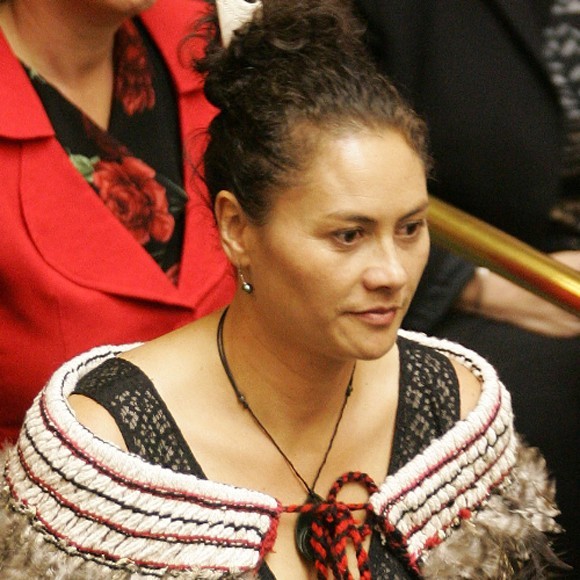The passing of legislation allowing same-sex couples to wed in New Zealand is attributable largely to strong leadership and bipartisanship – something Australia is severely lacking, writes Rodney Croome.
In the wake of marriage equality in New Zealand many Australians are asking, if them, why not us?
The answer is not public opinion.
Support for marriage equality in both countries is equal at about 60-65%.
The answer is not that New Zealand’s civil union scheme was a stepping stone to full equality.
Eight percent of Australians have access to state partnership schemes that offer the same rights as New Zealand’s. After years of debate, Australia is well and truly ready for reform.
The answer is not that kiwi advocates only had one parliament to convince.
In Australia, federalism has benefitted marriage equality, with the issue advancing faster at the state level than in Canberra.
The answer is leadership.
New Zealand’s national leaders put politics to one side and united behind their bill.
Compare this to Julia Gillard and Tony Abbott who continue to bury their heads in the sand.
New Zealand’s conservative Prime Minister, John Key, deserves special praise for personally supporting reform and allowing his party a conscience vote.
His message to Abbott is simple: this isn’t a left/right issue any more.
It’s about individual freedom and family values, things conservatives should support.
At the very least conservatives must be allowed a conscience vote on the issue.
If Australia’s current leaders refuse to be on the right side of history, then leadership will have to come from below.
It will come from those couples who will now flood across the Tasman to marry in New Zealand, only to have their solemn vows of lifelong commitment count for nothing when they return to Australia.
They and their families will push ever more strongly for the removal of the ban on the recognition of overseas same-sex marriages, as proposed by Greens Senator Sarah Hanson-Young.
Leadership will come from the states, with the passage of reform just two votes short in Tasmania, a possibility in NSW and South Australia and virtually assured in the ACT.
When same-sex couples begin legally marrying at a state level the dam of political resistance to marriage equality will have been breached.
Leadership will come from the millions of young Australians who support marriage equality passionately and in overwhelmingly numbers.
Their support for marriage equality was crucial in returning Barack Obama to the White House.
It will also be crucial in deciding key inner-city seats in the upcoming Australian election.
Finally, leadership will come from those federal MPs in all parties whose passion for equality has been spiced by a dash of shame because New Zealand got there first.
New Zealand has made marriage equality real for many Australians and inspired many more to fight harder for reform.
It has turned an inevitable reform into an urgent one and a second-tier issue into a matter of national honour.
Where New Zealand has led we will follow, without or without those who call themselves our leaders.
MARRIAGE EQUALITY IN NZ
On the evening of Wednesday, April 17, the New Zealand Parliament held the final vote on a bill to allow same-sex marriages. The Bill passed.
Will Australians marry in New Zealand?
• Yes. There is no residency requirement in the New Zealand Marriage Act so Australian same-sex couples will be free to marry there.
How has New Zealand achieved this first?
• Public support for marriage equality is the same in New Zealand as it is in Australia: 60-65%.
• The difference is that marriage equality has the support of the leaders of New Zealand’s major parties, including National Party Prime Minister, John Key, and Opposition Labour leader, David Shearer.
• New Zealand has had a civil union scheme since 2005, but it is little different to the equivalent state schemes that have prevailed in Australia since 2004.
How will this affect Australia?
• The world’s attention will be on New Zealand’s achievement, and Australia’s corresponding failure. This will diminish Australia in the eyes of the world.
• Australia will lose a proportion of the estimated $700 million same-sex couples plan to spend on their weddings, as these couples spend their money in New Zealand instead.
What other countries have marriage equality:
• Argentina, Belgium, Canada, Denmark, Iceland, Netherlands, Norway, Portugal, Spain, South Africa and Sweden (pending in France, Uruguay and New Zealand, passed by the House of Commons in the UK).
• States and provinces include Connecticut, Iowa, Maine, Maryland, Massachusetts, New Hampshire, New York, Vermont, Washington, the District of Columbia, and several states in Brazil and Mexico
• The Australian states where same-sex marriage laws have been proposed are Tasmania, NSW, South Australia, Victoria and Western Australia.
Source: Australia Marriage Equality
Author: Rodney Croome
Publication: Gaynew Network
Publication Date: April 22 2013

